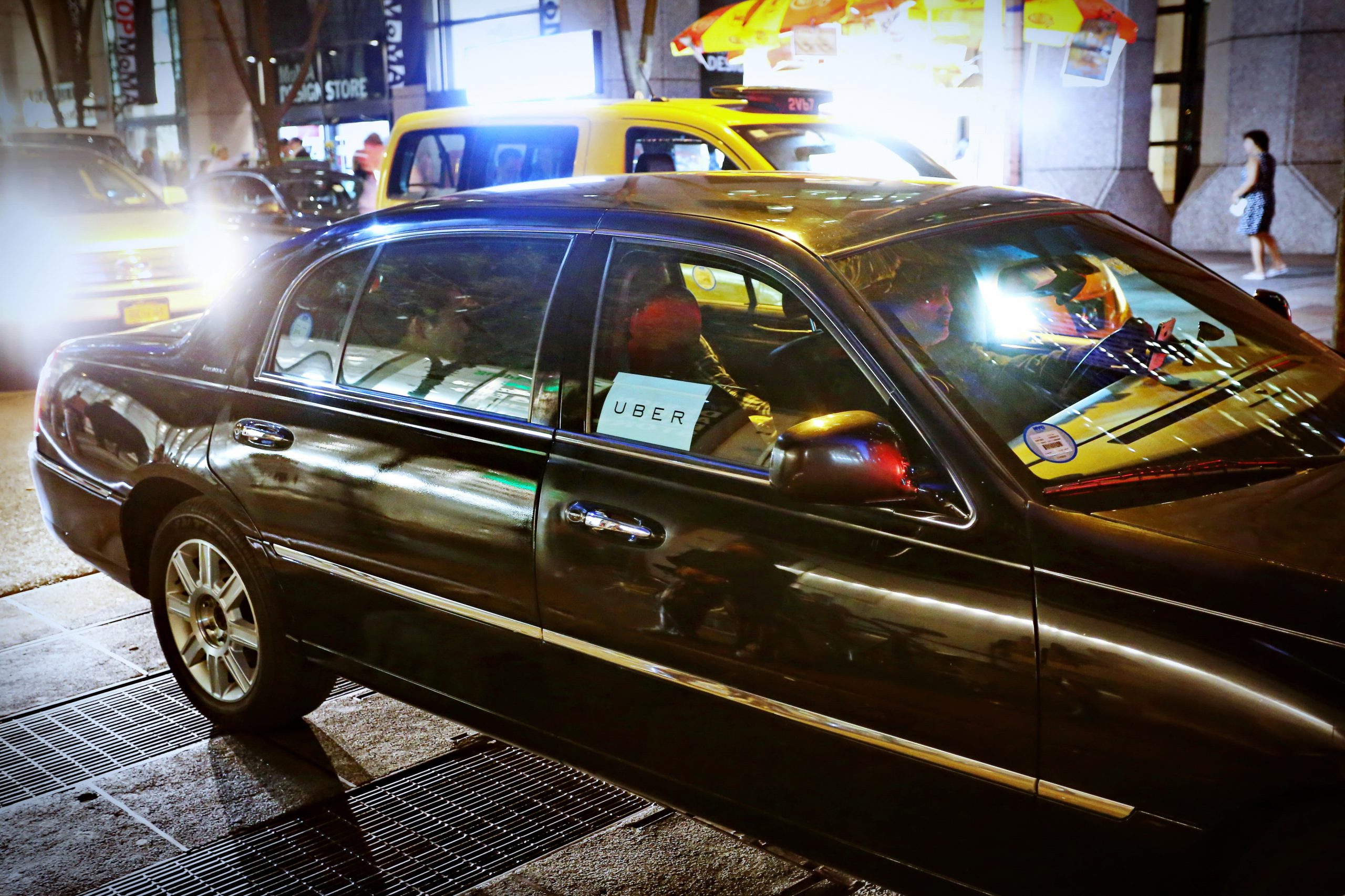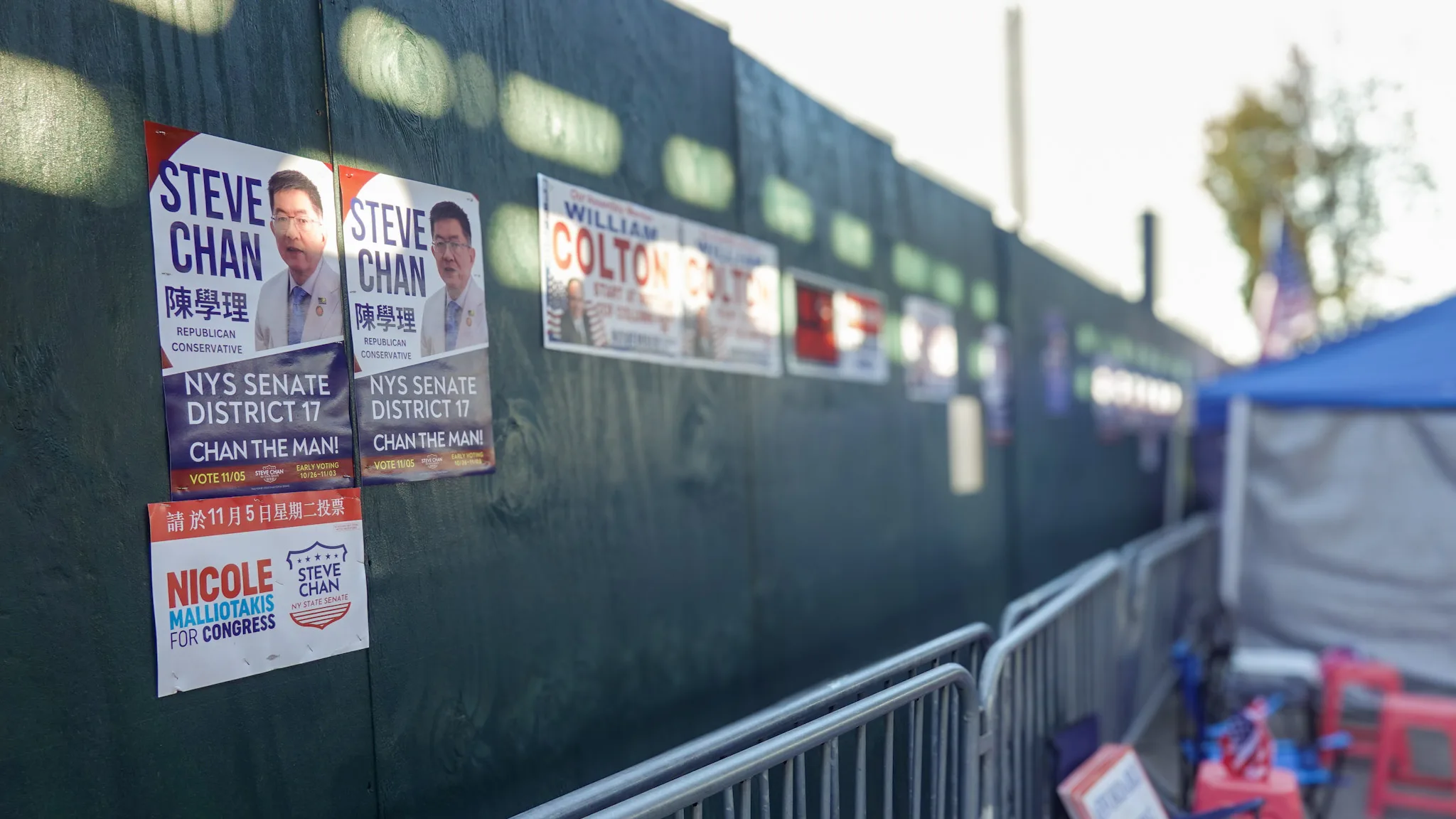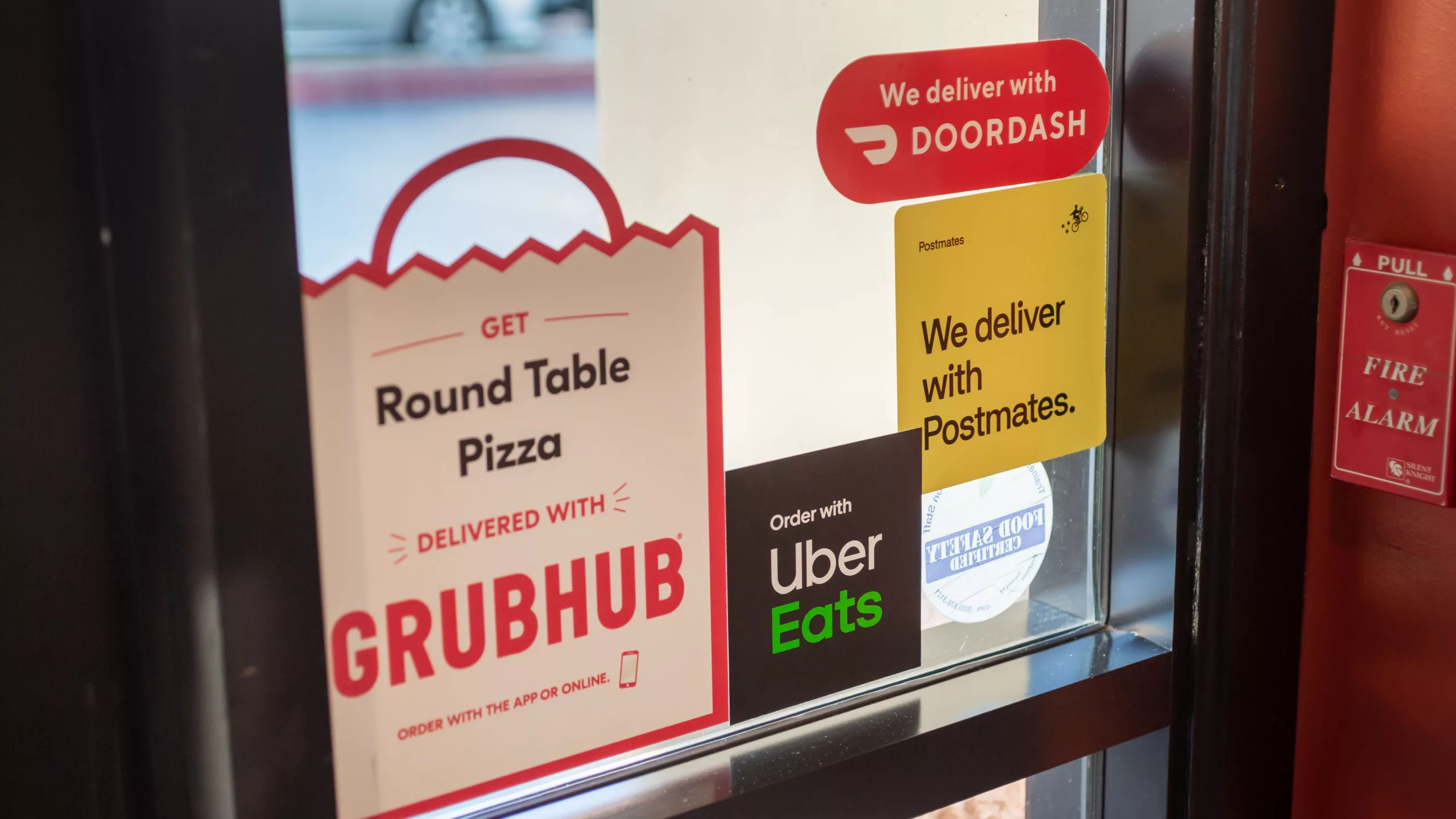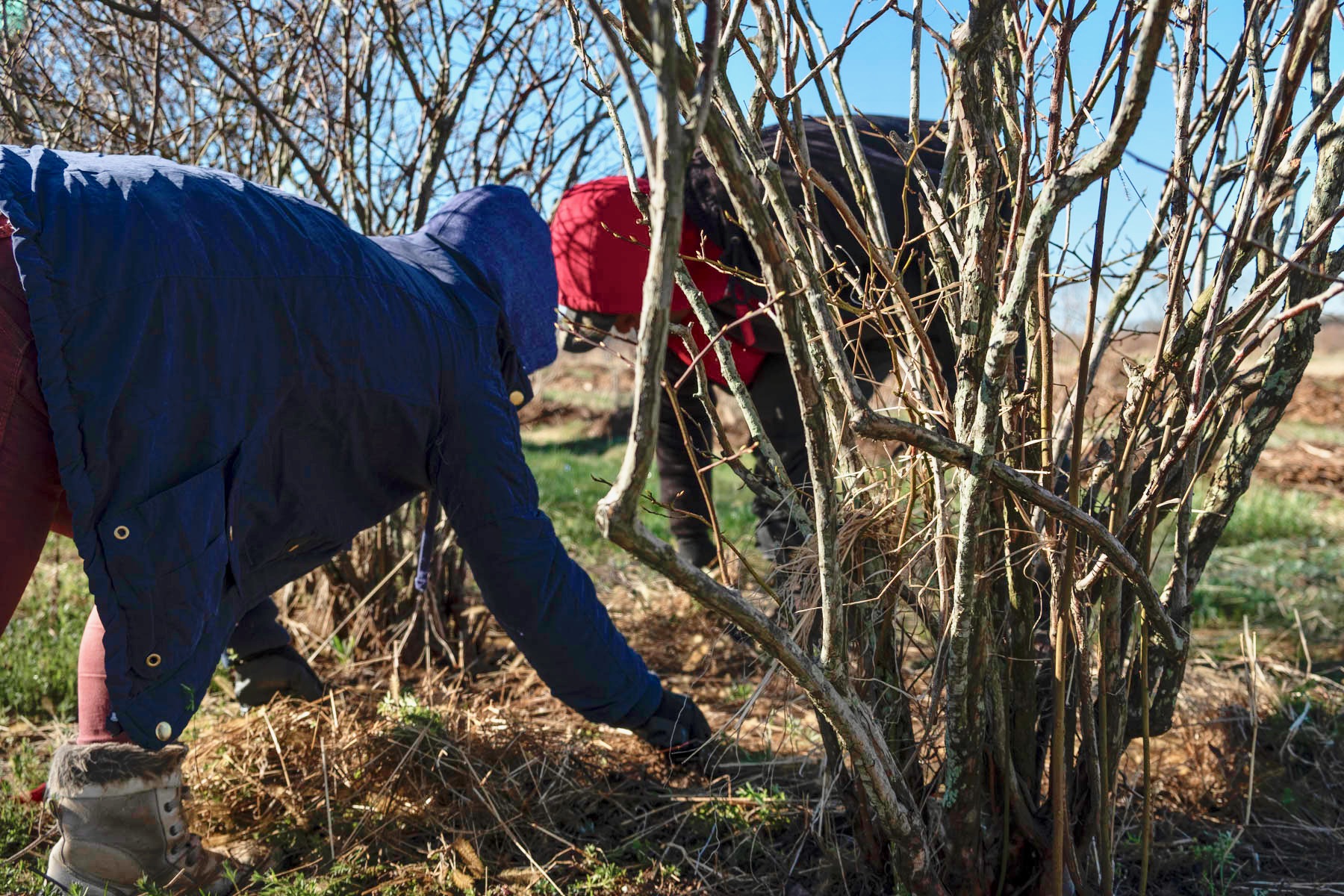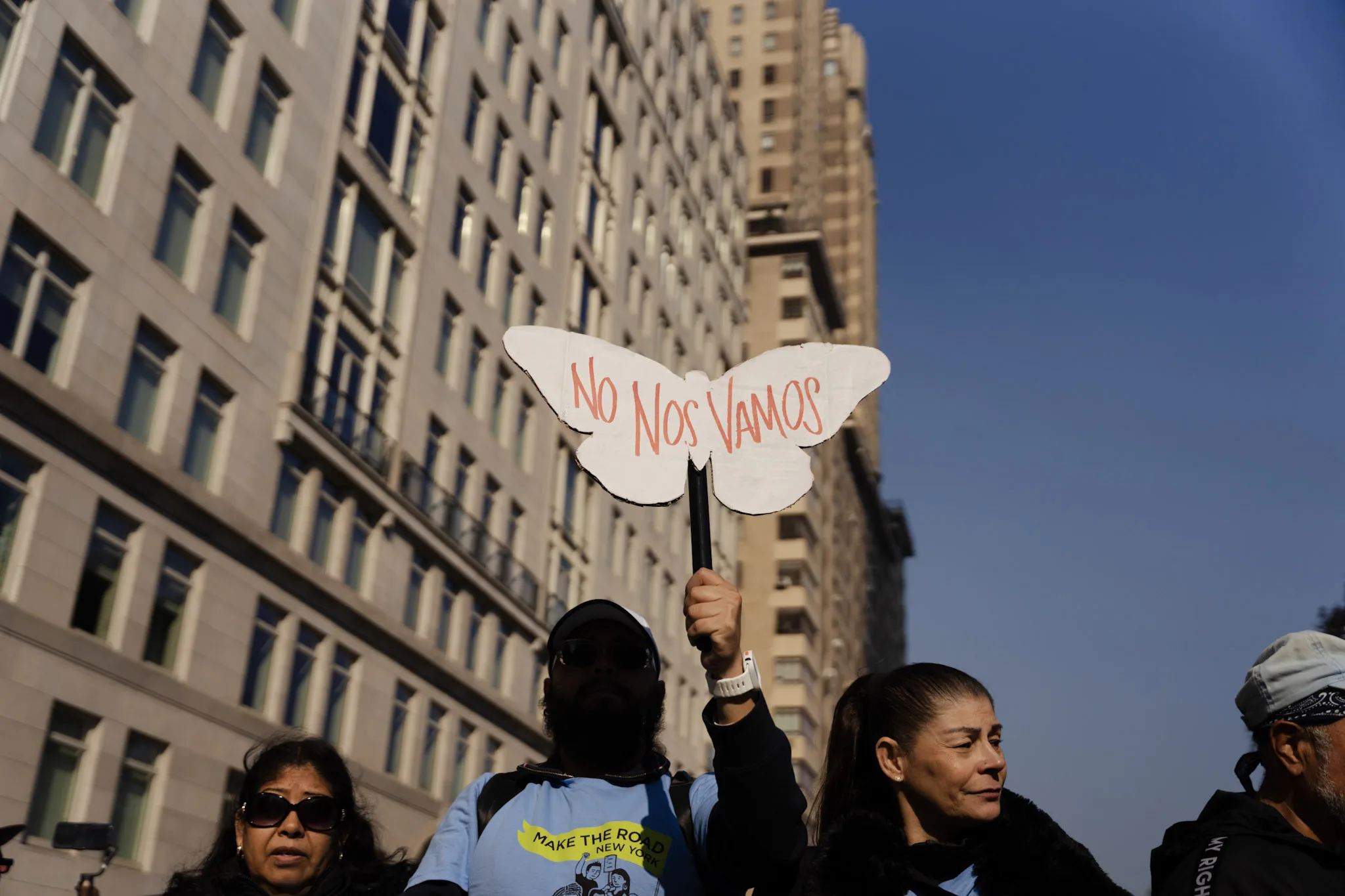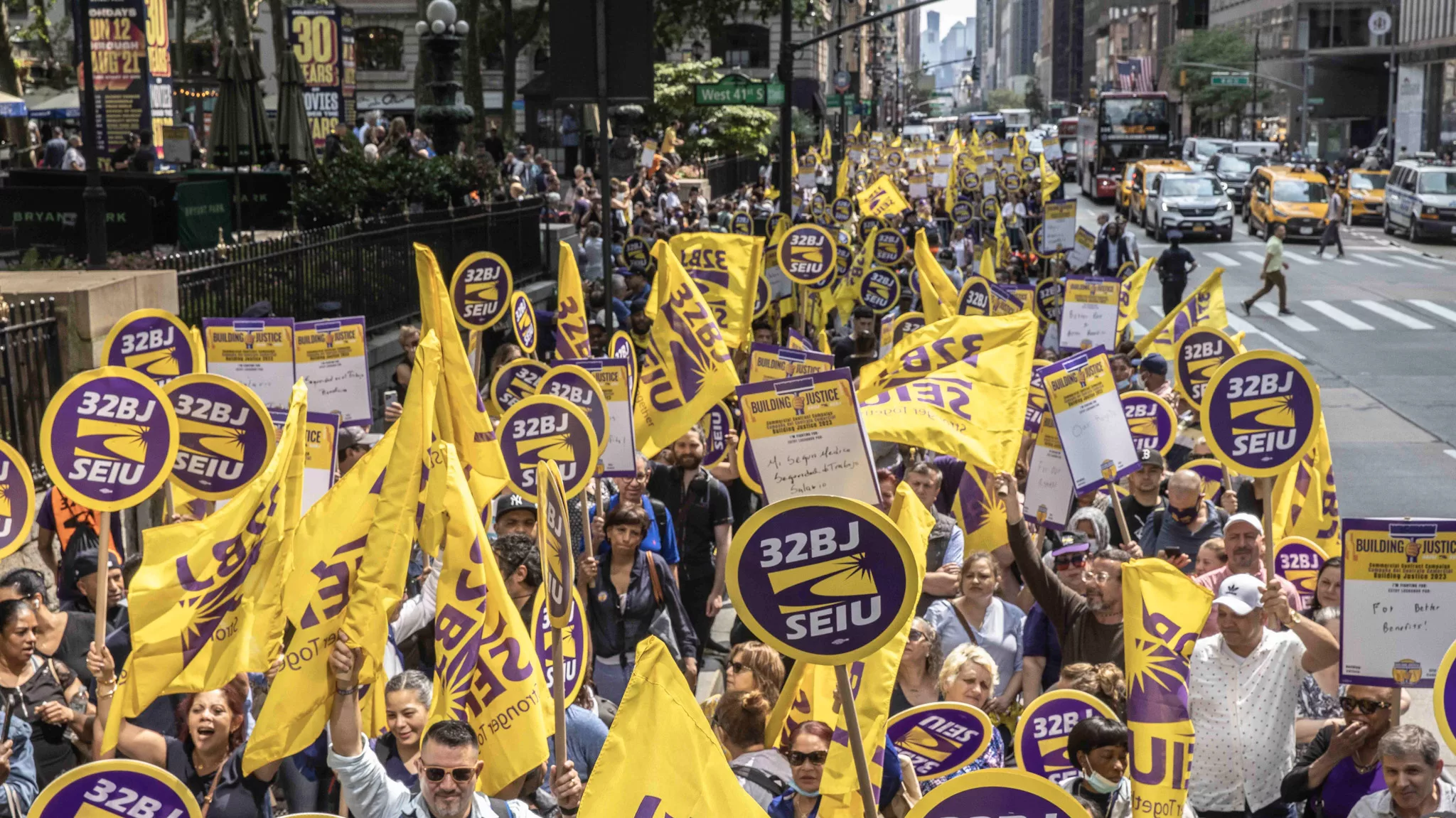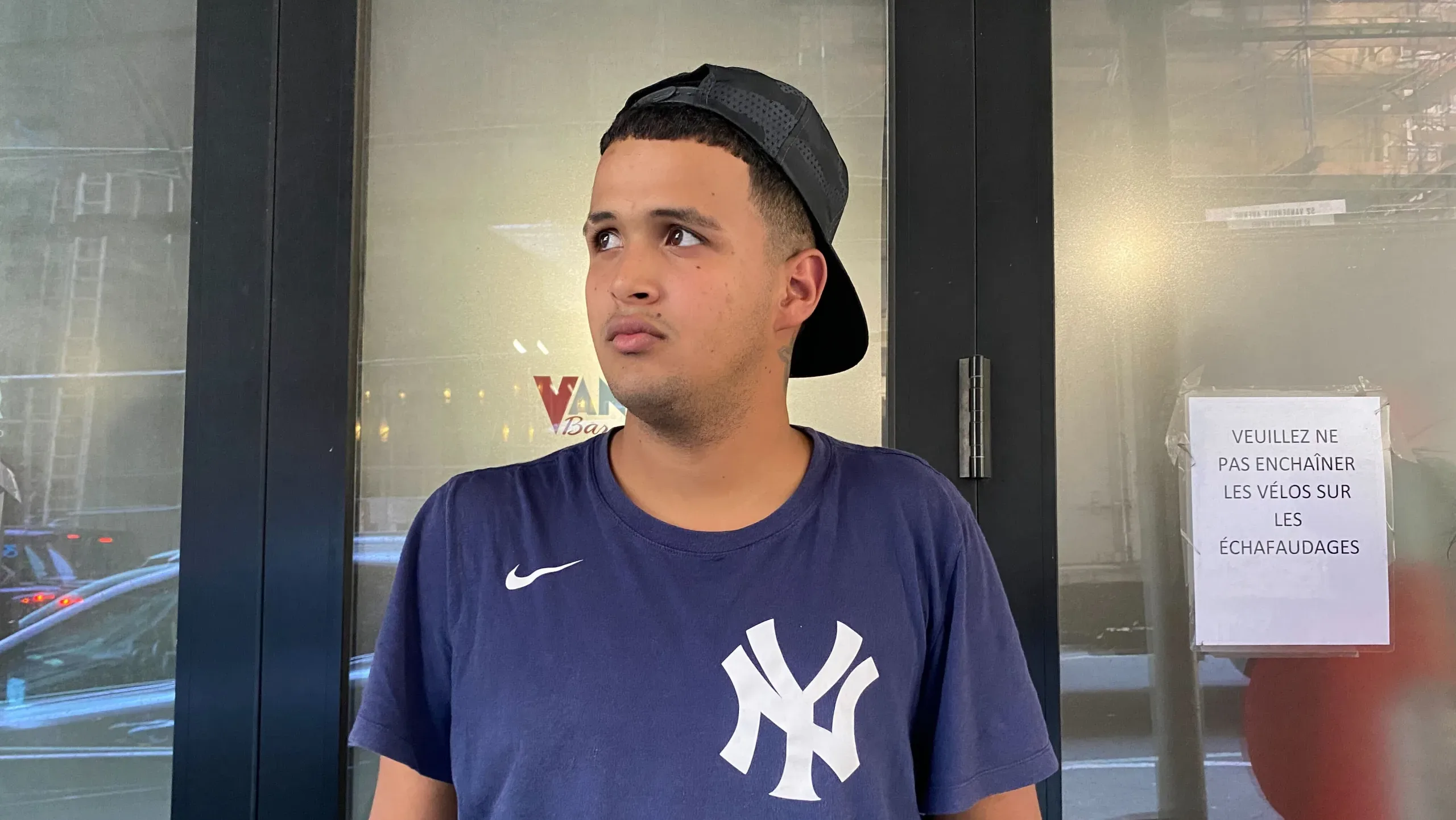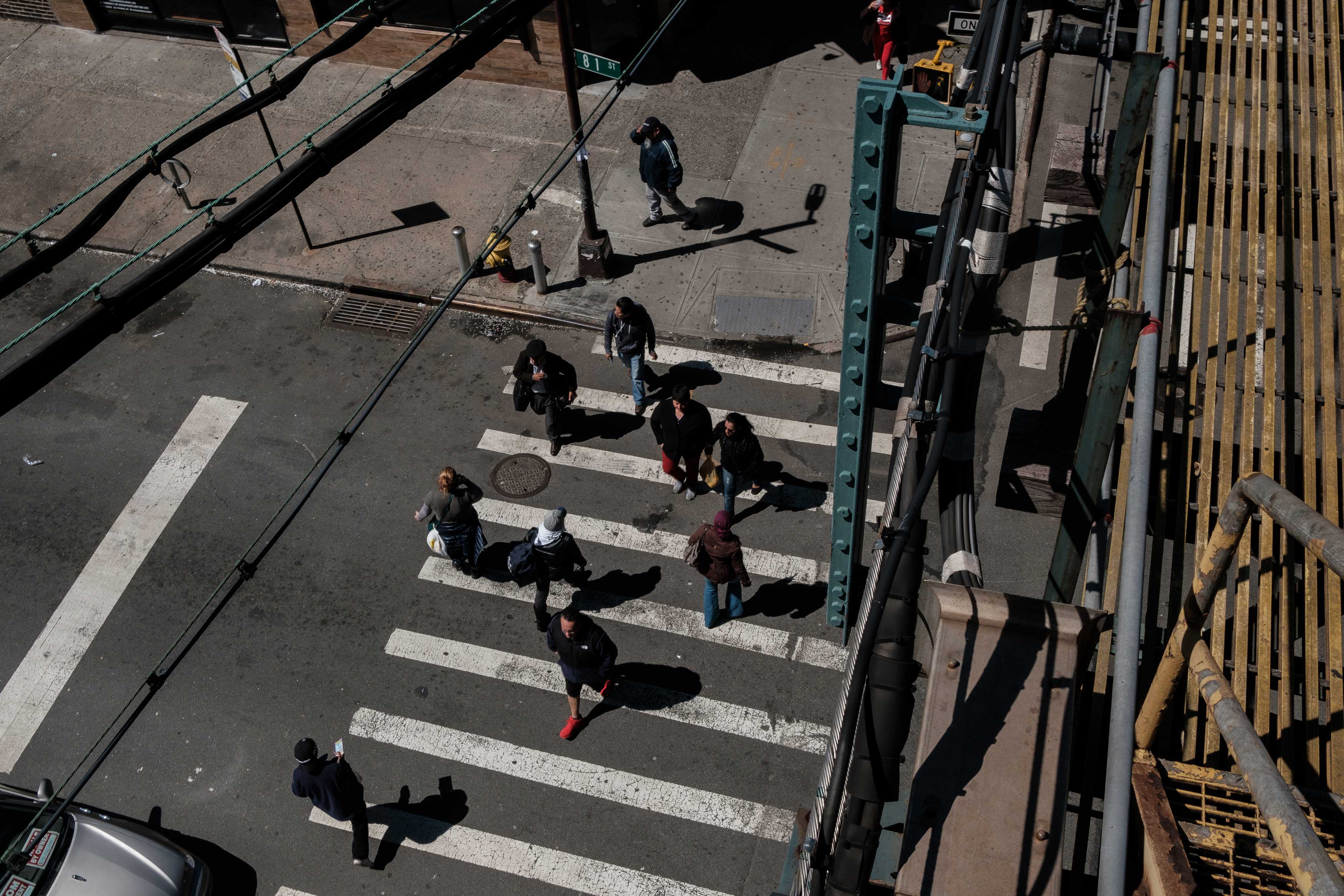It was time to relieve herself, Yan Li thought. She waited for the right moment when she was alone without passengers. With the Uber app still running, the woman pulled her Toyota Sienna over along one deserted street and quickly got in the back. While squatting, she reached for the bedpan and plastic bags she stored in one of her car compartments. She wrapped the bag tightly and set off to find a trash bin where she would dispose of it. This is how Li, a Chinese immigrant woman in her forties, has relieved herself since she started working for Uber seven years ago.
Li typically works twelve hours a day, starting at 11 in the morning, and her earnings have allowed her to support her grandparents, husband, and 21-year-old daughter, who are all in China. On any given day, Li feels the urge to use a restroom at least three times, but the number goes up when she drinks coffee, a necessity on long shifts. Immigrants have long turned to the gig economy when starting a new life in New York City. Driving for Uber or delivering food doesn’t require an educational certification or language proficiency just a vehicle and a driver’s license. And there’s really one factor which determines how much a driver makes: how long they’re willing to sit in their car.
Recent studies suggest that eighty-six percent of app-based drivers are immigrants, and more than half of them come from the Dominican Republic, Haiti, Pakistan, India, and Bangladesh. Nationwide, woman drivers represent seventeen percent of total delivery workers and around twenty-four percent of total ride-share drivers with apps like Uber and Lyft. And it’s women who face the greatest challenges when it comes to hygiene. “This industry is really dominated by male drivers,” said Michelle Dottin, a driver in her late fifties who moved to New York from Trinidad and Tobago. “Men can always find a little solution [to relieve themselves] that’s much easier, but for us, a solution is never easy.”
Menstruation is another consideration that drivers need to adapt to every month. “Every woman knows that you need to change pads or tampons every three or four hours, but for me, I just don’t have that time,” Li said with a bitter smile about her time with Uber. As a solution, Li started wearing an adult diaper, but even that proved to be an inconvenience: the diaper leaked several times as Li ended up wearing it for more than ten hours a day.
Only two 24/7 public bathrooms in NYC
In New York City, the lack of public restrooms has long been an issue. According to “The Need for Public Bathrooms,” a booklet by Urban Design Forum, there were only 1,103 public restrooms for the City’s eight million residents at the end of 2019, and only two of them were open 24/7. Many of those bathrooms are also out of reach to workers. Businesses that leave their restrooms open often charge user fees or ask people to make a purchase before using their restrooms. The same goes for gas stations, which sometimes only open their restrooms to customers who fill their tanks — a prohibitive ask in a place like Manhattan, where the price per gallon is almost twice as high as it in the City’s surroundings. “You have to learn where you can use a restroom without buying anything,” said Dottin. “You have to learn fast as we are on the road 14 hours a day.”
Also Read: Rideshare, Delivery Workers Demand Protections from App Companies
Other woman drivers with Lyft and Uber shared similar frustrations. “There was one time when I picked up food at a restaurant and I almost wet my pants,” said Ling Tong, a female delivery worker. “But the restaurant was asking for two dollars to use their restroom, and I felt really uncomfortable.” Eventually, after six months, Tong found a decent restroom that she could use free of charge.
Even if a restroom is available, app-based drivers risk getting a parking ticket to relieve themselves. “I cannot just double park and go to real restrooms in hotels or malls because it takes time, and sometimes also unnecessary money,” said Li. If she were to get a ticket, it would cost her about $115, more than half of what Li earns on an average day.
Some workers said they had switched to the night shift to more easily find parking spaces. Other drivers simply avoid drinking anything. “A few of my friends got diabetes because they weren’t drinking any water during the workday,” said Anwaar Malik, a driver who is originally from Pakistan.
In 2017, after a year-long campaign led by the Independent Drivers Guild (IDG), rideshare drivers won portable restrooms at JFK airport to relieve themselves. The IDG, an affiliate union to the International Association of Machinists & Aerospace Workers that represents over 80,000 app-based drivers in the city, was able to secure four portable toilets on the East lot and two on the West lot. Before long, however, it became clear that those restrooms would only be a partial fix. “Those portable restrooms at the airport are disgusting,” said Malik. “Although some people clean it up every week, more than a thousand people use it. You can imagine how it looks. Sometimes there is no sanitizer, and sometimes there is no toilet paper, and you can’t wash your hands.”
In the government’s absence, gas stations and private companies like Starbucks have borne the brunt of the issue . “Starbucks was where I went for restrooms in Manhattan before the pandemic outbreak,” said Min Zhou, 54, a woman immigrant who works for Uber. “I almost memorized the restroom’s password for every Starbucks in Manhattan.” Yet, since the pandemic, many businesses have closed their restrooms, even for customers.
“The most alone worker”
In January, the city passed a new piece of legislation to regulate the online third-party food delivery service and provide legal workplace protections for delivery workers, such as better access to restaurant bathrooms. However, many app-based workers are still unaware of the existence of such laws. “They don’t even know this law passed as it wasn’t written on UberEats, DoorDash, or anywhere,” said Malik.
In New York, app-based workers are independent contractors who lack the protections afforded full-time employees under the law, including minimum wage, insurance, and the right to unionize. Organizations like IDG are connecting drivers and fighting for their right to collective bargaining. They have a petition to access more taxi relief stands, which allow drivers to park their vehicles for up to one hour and take care of personal needs. “Over the last decade, since the emergence of the ride-share industry, the amount of For-Hire Vehicles on the streets of New York has multiplied, but opportunities to park, pause, and take care of basic health care and personal needs have not kept up,” IDG wrote in the petition.
Also Read: Meet the Immigrant Women on Hunger Strike for Pandemic Relief
Dr. Wansoo Im created an interactive map showing all open restrooms in New York in 2004. “It’s hard to believe that 17 years after, the restroom problem still exists,” Im said. The Meharry Medical College professor saw the issue not only as a washroom issue. “It is more about public health, city planning, and more importantly, about basic human rights,” he stressed.
Im also warned of the long underestimated economic impact of the inadequate number of public restrooms citywide. “When drivers cannot find public restrooms, they need to find their own way to solve the problem. Some would simply pee outside, and you need more people to clean the mess up, which is also a huge cost,” Im explained.
“Apparently, drivers and those people who don’t have access are paying the price in the end,” he added.
陈学理胜选凸显华人社区“右转”
Although advocate groups proposed that all taxi relief stands in the city should be available to ride-share drivers, the Department of Transportation hasn’t made the move. Currently, drivers of For-Hire Vehicles can only use 33 of the 74 relief stands across the city.
Earlier this year, Uber launched a new function enabling ride-share drivers to locate gas stations and restrooms around them on the map. Drivers can request a pause to relive themselves at a nearby restroom. Before this feature come into life, drivers could only depend on their experience to find a restroom.
For experienced drivers, it is much convenient to get information and collective supports from IDG or their cohorts. For newcomers who are anxious about finding a way to relieve themselves, however, the help never comes easy. “Because we drivers don’t have offices, we don’t have the chance to talk with each other. We don’t know each other until we gained enough experience,” said Dottin.
“It was just as if you were alone [in the car], you are the most alone worker in the whole world,” she added.
